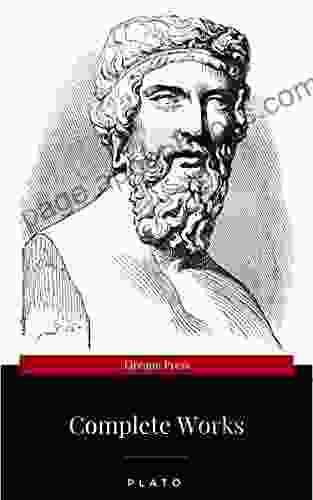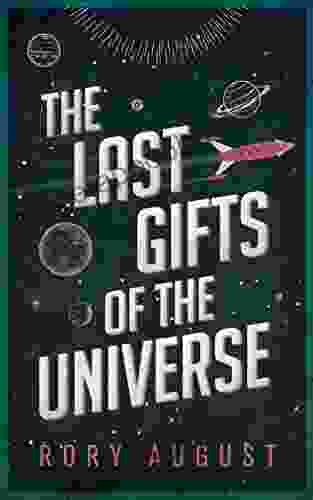From The Greatest Greek Philosopher Known For The Republic, Symposium, Apology

Plato was one of the most influential philosophers in history. His writings have had a profound impact on Western thought, and his ideas continue to be debated and discussed today.
4.7 out of 5
| Language | : | English |
| File size | : | 2592 KB |
| Text-to-Speech | : | Enabled |
| Screen Reader | : | Supported |
| Enhanced typesetting | : | Enabled |
| X-Ray | : | Enabled |
| Word Wise | : | Enabled |
| Print length | : | 1826 pages |
| X-Ray for textbooks | : | Enabled |
Plato was born in Athens, Greece, in 428 or 427 BC. He was the son of Ariston, a wealthy Athenian aristocrat, and Perictione, a relative of the statesman Pericles. Plato's family was wealthy and well-connected, and he received a privileged education. He studied with some of the most famous philosophers of his day, including Socrates and Cratylus.
In 387 BC, Plato founded the Academy, a school of philosophy in Athens. The Academy was a center of learning and scholarship, and it attracted students from all over Greece. Plato taught at the Academy for over 20 years, and he wrote many of his most famous works during this time.
Plato's writings cover a wide range of topics, including ethics, politics, metaphysics, and epistemology. His most famous works include the Republic, the Symposium, and the Apology. The Republic is a dialogue in which Socrates discusses the nature of justice and the ideal state. The Symposium is a dialogue in which Socrates and his friends discuss the nature of love. The Apology is a speech that Socrates gave in his own defense before the Athenian jury that sentenced him to death.
Plato's writings have had a profound impact on Western thought. His ideas about justice, love, and knowledge have been debated and discussed for centuries. Plato's work continues to be a source of inspiration and insight for philosophers, scholars, and students today.
The Republic
The Republic is Plato's most famous work. It is a dialogue in which Socrates discusses the nature of justice and the ideal state. The Republic is divided into ten books, and it covers a wide range of topics, including education, government, and the role of women in society.
In the Republic, Socrates argues that justice is the highest virtue. He defines justice as "giving to each person what is his due." Socrates believes that a just state is one in which each person is able to perform the function for which he or she is best suited. This means that the state should be divided into three classes: the rulers, the auxiliaries, and the producers.
The rulers are responsible for making and enforcing the laws. They must be wise and just, and they must be trained in philosophy. The auxiliaries are responsible for defending the state. They must be brave and strong, and they must be trained in military tactics. The producers are responsible for providing food, clothing, and shelter for the state. They must be skilled workers, and they must be willing to work hard.
Socrates believes that a just state is one in which each person is happy and fulfilled. He argues that happiness is achieved when people are able to live in accordance with their nature. This means that the rulers must be able to rule wisely and justly, the auxiliaries must be able to defend the state bravely and effectively, and the producers must be able to provide for their own needs and the needs of the state.
The Symposium
The Symposium is a dialogue in which Socrates and his friends discuss the nature of love. The Symposium is divided into eight speeches, each of which is given by a different person. The speeches range from a humorous account of love as a form of madness to a serious discussion of love as the highest form of knowledge.
In the Symposium, Socrates argues that love is a desire for beauty. He believes that beauty is the highest good, and that love is the only way to achieve true happiness. Socrates also argues that love is a form of knowledge. He believes that love is a way of understanding the true nature of reality.
The Symposium is a beautiful and thought-provoking dialogue. It is a celebration of love in all its forms, and it offers a unique perspective on the human condition.
The Apology
The Apology is a speech that Socrates gave in his own defense before the Athenian jury that sentenced him to death. The Apology is a powerful and moving speech in which Socrates defends his life and his philosophy.
In the Apology, Socrates argues that he is not guilty of the charges that have been brought against him. He says that he is not a sophist, and that he does not corrupt the youth of Athens. Socrates believes that he is a philosopher, and that his mission is to seek the truth. He says that he will continue to seek the truth, even if it means that he must die.
The Apology is a powerful and moving speech. It is a testament to Socrates' courage and his commitment to the truth. The Apology is also a valuable historical document, as it provides us with a glimpse into the trial and death of one of the greatest philosophers of all time.
Plato was one of the most influential philosophers in history. His writings have had a profound impact on Western thought, and his ideas continue to be debated and discussed today.
Plato's writings cover a wide range of topics, including ethics, politics, metaphysics, and epistemology. His most famous works include the Republic, the Symposium, and the Apology. These works are essential reading for anyone who wants to understand Western philosophy.
4.7 out of 5
| Language | : | English |
| File size | : | 2592 KB |
| Text-to-Speech | : | Enabled |
| Screen Reader | : | Supported |
| Enhanced typesetting | : | Enabled |
| X-Ray | : | Enabled |
| Word Wise | : | Enabled |
| Print length | : | 1826 pages |
| X-Ray for textbooks | : | Enabled |
Do you want to contribute by writing guest posts on this blog?
Please contact us and send us a resume of previous articles that you have written.
 Book
Book Novel
Novel Page
Page Chapter
Chapter Text
Text Story
Story Genre
Genre Reader
Reader Library
Library Paperback
Paperback E-book
E-book Magazine
Magazine Newspaper
Newspaper Paragraph
Paragraph Sentence
Sentence Bookmark
Bookmark Shelf
Shelf Glossary
Glossary Bibliography
Bibliography Foreword
Foreword Preface
Preface Synopsis
Synopsis Annotation
Annotation Footnote
Footnote Manuscript
Manuscript Scroll
Scroll Codex
Codex Tome
Tome Bestseller
Bestseller Classics
Classics Library card
Library card Narrative
Narrative Biography
Biography Autobiography
Autobiography Memoir
Memoir Reference
Reference Encyclopedia
Encyclopedia Mike Meeson
Mike Meeson Tony Burgess
Tony Burgess Maxine Morrey
Maxine Morrey Mark Prins
Mark Prins Mark Ramsay
Mark Ramsay Scott Mariani
Scott Mariani Michael Medina
Michael Medina Maxine Neely Davenport
Maxine Neely Davenport Michael Hopkinson
Michael Hopkinson Martin Lund
Martin Lund Megan Miranda
Megan Miranda Robert S Bennett
Robert S Bennett Robin Barratt
Robin Barratt Toni Mcclintock
Toni Mcclintock Sanford L Jacobs
Sanford L Jacobs Mihoko Ueno
Mihoko Ueno Nell Scharff Panero
Nell Scharff Panero Mir Yar Ali Khan
Mir Yar Ali Khan Norman Mailer
Norman Mailer Sang Young Park
Sang Young Park
Light bulbAdvertise smarter! Our strategic ad space ensures maximum exposure. Reserve your spot today!

 Joe SimmonsJourney into the Darkness: "The Hunt Acid Vanilla" - A Haunting Thriller That...
Joe SimmonsJourney into the Darkness: "The Hunt Acid Vanilla" - A Haunting Thriller That... Fernando PessoaFollow ·2.6k
Fernando PessoaFollow ·2.6k Carlos FuentesFollow ·6.6k
Carlos FuentesFollow ·6.6k Brayden ReedFollow ·11.3k
Brayden ReedFollow ·11.3k Denzel HayesFollow ·12.4k
Denzel HayesFollow ·12.4k Dylan HayesFollow ·9.9k
Dylan HayesFollow ·9.9k Quincy WardFollow ·3.9k
Quincy WardFollow ·3.9k Nick TurnerFollow ·6.3k
Nick TurnerFollow ·6.3k Jeffrey CoxFollow ·18.6k
Jeffrey CoxFollow ·18.6k
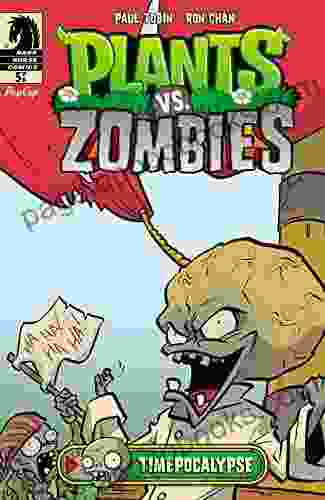
 Ben Hayes
Ben HayesJourney into the Verdant Realm of "Plants vs. Zombies:...
Immerse Yourself in an Epic Battle for...

 Edward Reed
Edward ReedUnveiling the Allure of Modish Crochet Hats Annie...
In the realm of fashion and...
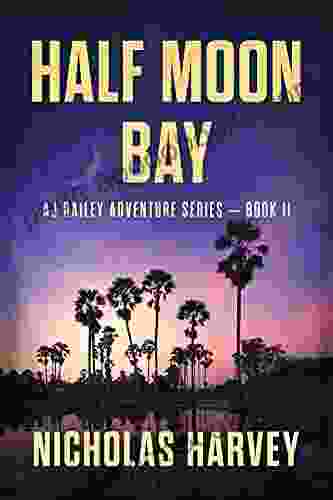
 Jaylen Mitchell
Jaylen MitchellHalf Moon Bay: An Unforgettable Adventure Awaits in Aj...
Prepare yourself...
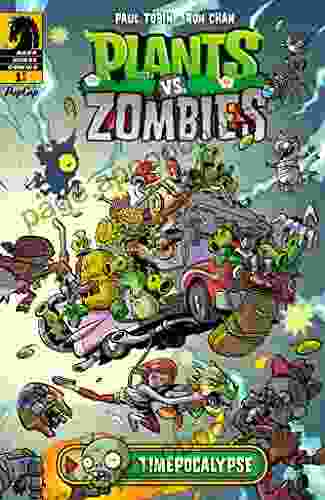
 Dan Brown
Dan BrownUnleash the Plant-Powered Apocalypse: Dive into Paul...
Prepare yourself for an epic showdown where...

 Efrain Powell
Efrain PowellStolen Summer: Nora Sommer's Enthralling Caribbean...
Escape to a World of...
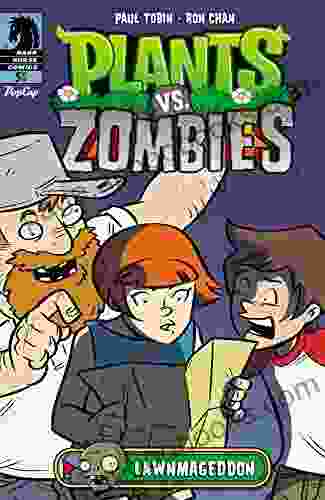
 Steven Hayes
Steven HayesPlants vs. Zombies: Lawnmageddon - The Ultimate Battle...
Prepare for the ultimate battle between plants...
4.7 out of 5
| Language | : | English |
| File size | : | 2592 KB |
| Text-to-Speech | : | Enabled |
| Screen Reader | : | Supported |
| Enhanced typesetting | : | Enabled |
| X-Ray | : | Enabled |
| Word Wise | : | Enabled |
| Print length | : | 1826 pages |
| X-Ray for textbooks | : | Enabled |


